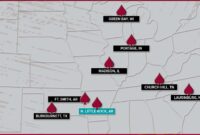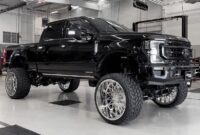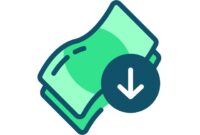Craigslist Free Cars: Unearthing Automotive Opportunities (and Challenges) sale.truckstrend.com
In the vast digital marketplace of Craigslist, where everything from antique furniture to rare collectibles finds a new home, one peculiar category consistently piques the interest of budget-conscious individuals and automotive enthusiasts alike: "free cars." The very phrase conjures images of a miraculous, no-cost vehicle solution. However, the reality of "Craigslist Free Cars" is far more nuanced than a simple handout. It represents a unique ecosystem where unwanted vehicles, often non-running or in dire need of repair, are offered for the low, low price of zero dollars – usually with the implicit understanding that the recipient will handle removal and, if desired, rehabilitation.
This guide delves deep into the world of Craigslist Free Cars, exploring what these listings truly mean, who stands to benefit, how to navigate the search, and the critical considerations one must weigh before taking the plunge into a seemingly "free" automotive endeavor. It’s an opportunity for those with mechanical inclination, a need for parts, or simply a desire for a challenging project, but it’s rarely a path to instant, ready-to-drive transportation.
Craigslist Free Cars: Unearthing Automotive Opportunities (and Challenges)
The Reality of "Free" Cars on Craigslist
The term "free car" on Craigslist almost never implies a fully functional, road-ready vehicle that someone is simply giving away out of generosity. Instead, "free" typically signifies that the owner wants to offload a vehicle that has become a burden. This burden can manifest in several ways:
- Non-Running/Junk: The most common scenario. The car’s engine is seized, transmission failed, or it has significant mechanical issues making it undrivable.
- Unwanted Project Car: Someone started a restoration or repair project and either lost interest, ran out of money, or simply doesn’t have the time to finish.
- Cost of Disposal: Owners often find that towing and scrapping a vehicle can cost money. Offering it for "free" means someone else takes on the removal cost, saving the owner hassle and expense.
- No Title/Lost A significant hurdle. Without a transferable title, registering the vehicle for road use becomes incredibly difficult, if not impossible, in most states. These are often offered for parts only.
- Environmental Concerns: An old, leaking vehicle sitting on a property can pose environmental risks, and owners may want it gone quickly and cleanly.

Therefore, approaching "free cars" on Craigslist requires a mindset shift: you’re not getting a free car; you’re getting a free problem that, with the right effort and investment, might be transformed into a solution or a valuable source of parts.
Who Benefits from Craigslist Free Cars?

While not for everyone, several groups can find significant value in these "free" automotive opportunities:
- Mechanically Inclined Individuals & DIY Enthusiasts: If you possess a strong understanding of automotive mechanics, have a well-equipped garage, and enjoy the challenge of bringing a defunct vehicle back to life, a free car can be an incredibly rewarding project.
- Parts Scavengers: Many "free cars" are perfect donors for specific parts. If you own a similar make and model, acquiring a free parts car can save you hundreds, if not thousands, on components for your existing vehicle.
- Aspiring Mechanics/Students: Working on a "free" vehicle provides invaluable hands-on experience without the pressure of potentially damaging an expensive asset. It’s a low-stakes learning environment.
- Scrap Metal Dealers/Recyclers: While often these cars are given away to avoid paying for removal, a metal recycler might still find value in the raw materials, sometimes even offering a small sum for collection.
- Budget-Conscious Individuals (with a catch): For those with extremely limited funds but a willingness to learn and invest sweat equity, a "free" car could eventually become transportation. However, this path is fraught with potential hidden costs.

How to Find "Free" Cars on Craigslist (The Search Strategy)
Finding these elusive "free" vehicles requires persistence, clever keyword usage, and quick action.
-
Keyword Mastery: Don’t just search for "free car." Expand your search terms to include:
- "Free project"
- "Parts car"
- "Junk car"
- "Needs work"
- "Take away"
- "Salvage"
- "Broken car"
- "Blown engine" / "Bad transmission" (specific issues)
-
Section Exploration: While the "Cars & Trucks" section is obvious, also check:
- "Free Stuff": Often, desperate owners will list it here to maximize visibility.
- "Auto Parts": Sometimes a whole car is listed under parts, especially if the owner intends it for that purpose.
- "Materials": Less common, but some might list it here as a bulk material.
-
Location Filters: Set your search radius appropriately. The cost and logistics of towing often limit how far you can realistically go for a free vehicle.
-
Frequency of Checking: Good deals on "free" cars disappear fast. Set up email alerts if Craigslist offers them for your area, or check the site multiple times a day, especially during peak posting times (e.g., evenings and weekends).
-
Be Quick to Act: If you see a promising listing, contact the seller immediately. Have your questions ready and be prepared to arrange a viewing or pickup very soon.
Important Considerations Before Taking a "Free" Car
Before you jump at the chance to acquire a seemingly "free" vehicle, pause and consider these critical factors. This is where the true cost and potential headaches of a "free car" become apparent.
-
Title and Paperwork: This is paramount. Can you legally obtain a transferable title?
- Clean Ideal, but rare. Means the car has no liens or salvage history.
- Salvage The car was declared a total loss by an insurance company. It can be rebuilt but requires a thorough inspection process (state-specific) to be re-registered.
- Lost The owner doesn’t have it. In some states, the owner can apply for a duplicate. In others, you might need to go through a bonded title process, which costs money and time, or it might be impossible.
- No Title at All: This is a major red flag. Without a title, the car is effectively "parts only" in most jurisdictions and cannot be legally registered for road use. Always confirm title status before going to see the car.
-
Condition Assessment: What exactly is wrong with the car?
- Engine/Transmission: The most expensive components. Is it seized, blown, or just needs minor repair?
- Rust: Frame rust is a deal-breaker. Surface rust is manageable.
- Electrical Issues: Can be notoriously difficult and expensive to diagnose and fix.
- Body Damage: Cosmetic issues are usually secondary to mechanical ones, but can add up if you want it looking good.
- Interior: Water damage, mold, extreme wear.
-
Cost of Repairs: "Free" acquisition does not mean free ownership. Get estimates for potential repairs, even if you plan to DIY. Factor in:
- Parts: New, used, or aftermarket.
- Specialized Tools: Do you need to buy specific tools for the job?
- Fluids/Consumables: Oil, coolant, brake fluid, filters, spark plugs, etc.
- Labor (if not DIY): Even simple repairs can quickly exceed the value of the car.
-
Towing/Transportation: How will you get the car home? A non-running vehicle will require a flatbed tow truck. Get a quote beforehand, as this can easily be $75-$250 for a local tow.
-
Space and Storage: Do you have a suitable, legal place to store a non-running vehicle while you work on it? Some HOAs or local ordinances prohibit storing inoperable vehicles.
-
Environmental Impact & Disposal Plan: If the car leaks fluids, how will you contain them? If you can’t fix it, what’s your plan for disposal? Will you pay to have it scrapped?
-
Safety: Is it safe to work on the vehicle? Are there major structural issues that could compromise safety during repairs or even if it were to become roadworthy?
The Process: From Inquiry to Acquisition
Once you’ve identified a promising "free car" listing, follow these steps to increase your chances of a successful acquisition:
-
Initial Contact:
- Be polite and concise.
- Ask about the title status immediately.
- Inquire about the known issues (e.g., "What’s wrong with it?", "Why won’t it start?").
- Confirm the location and availability for viewing.
-
Inspection (Crucial!):
- Do not skip this step. Never take a "free" car sight unseen.
- Bring a knowledgeable friend if you’re not mechanically inclined.
- Look for rust, especially on the frame, suspension points, and brake lines.
- Check fluid levels and look for leaks (oil, coolant, transmission fluid).
- Inspect the engine bay for obvious signs of damage, missing components, or rodent nests.
- Try to start it (if the seller allows and it’s safe to do so).
- Verify the VIN on the dash matches the title (if available).
- Be prepared to walk away if the condition or title issues are too problematic.
-
Negotiation (Even for "Free"):
- While the car is "free," you might still negotiate terms. Can you pick it up on a specific day? Can you pay a small fee for the title transfer to ensure the seller signs it properly?
-
Paperwork:
- Title Transfer: If a title is available, ensure the seller properly signs it over to you. Get their full name and address.
- Bill of Sale: Even for $0, create a simple bill of sale. Include:
- Date of transaction
- Buyer’s and Seller’s full names and addresses
- Vehicle year, make, model, and VIN
- Stated price ($0)
- A clause stating "as-is, where-is"
- Signatures of both parties. This provides a record and protects you.
-
Transportation:
- Arrange towing before you commit to taking the car. Have a tow truck lined up or confirm your ability to haul it. Don’t assume you can get it home easily.
Potential Challenges and Solutions
The path of the "free car" warrior is not without its obstacles. Here are common challenges and potential solutions:
-
No Title/Impossible Title Transfer:
- Challenge: The car cannot be legally registered for road use.
- Solution: Accept it as a "parts only" vehicle. If your goal was to drive it, walk away. In rare cases, some states have procedures for bonded titles or lost titles, but these are often complex and costly.
-
Extensive Undisclosed Damage/Hidden Issues:
- Challenge: The seller downplayed problems, or there are significant issues you missed during inspection.
- Solution: Thorough inspection is your best defense. Assume worst-case scenarios. If you discover major issues after acquisition, you might have to pivot to a parts-only strategy or pay for professional disposal.
-
Seller Reliability/Safety Concerns:
- Challenge: The seller is unresponsive, flaky, or the meeting location feels unsafe.
- Solution: Trust your gut. Communicate clearly. If possible, meet in a public place or bring a friend. Don’t put yourself in a risky situation for a "free" car.
-
Disposal Costs:
- Challenge: You acquire the car, can’t fix it, and now need to pay to have it removed.
- Solution: Have a contingency plan. Research local scrap yards; some might offer a minimal amount, others will charge for removal. Consider if you can salvage valuable parts to offset costs.
-
Time and Skill Commitment Overestimation:
- Challenge: You realize the project is far more complex or time-consuming than anticipated.
- Solution: Be realistic about your skills, tools, and available time from the outset. Don’t take on more than you can handle. It’s okay to admit defeat and re-list it as a "free project" for someone else.
Practical Advice and Actionable Insights
- Always Assume It’s a Project: Never expect a "free" car to be a quick fix or a daily driver. It’s a project, and often a significant one.
- Know Your Mechanical Limits: Be honest with yourself about your automotive knowledge and capabilities. If you can’t change a tire, rebuilding an engine is likely beyond your current skill set.
- Prioritize Title Issues: The title is more important than the car’s physical condition if your goal is a street-legal vehicle. No title, no registration.
- Factor in ALL Potential Costs: The acquisition cost might be zero, but towing, parts, fluids, tools, title transfer, registration, and insurance are not. Create a budget.
- Be Patient, But Act Fast: The right "free" car might not appear immediately, but when it does, good ones go quickly.
- Safety First: When inspecting or working on the vehicle, prioritize your personal safety. Use jack stands, wear protective gear, and follow proper procedures.
Cost & Value Analysis Table for Craigslist Free Cars
While the acquisition cost is $0, the true cost of getting a "free car" on the road, or even just working on it, can vary widely. This table outlines potential associated costs and their importance.
| Item/Service | Description | Estimated Cost Range | Importance/Notes |
|---|---|---|---|
| Car Acquisition | The vehicle itself. | $0 | The defining feature of "free cars." |
| Towing/Transportation | Getting the non-running vehicle from the seller’s location to yours. | $75 – $250 | Critical. Essential unless the car is drivable (rare for "free"). Depends on distance. |
| Title Transfer Fees | State fees to transfer ownership into your name. | $15 – $100 | Critical for legality. Required for registration. Some states charge more. |
| Basic Maintenance | Oil change, fluid top-offs, new spark plugs, air filter, battery. | $50 – $300 | Essential for initial assessment/operation. Even a non-running car needs basic checks. |
| Major Repairs (Parts) | Components like engine, transmission, suspension, brakes, tires, exhaust, body panels. | $100 – $2000+ | Highly Variable. The biggest cost factor. Can be reduced by sourcing used parts. |
| Major Repairs (Labor) | If you’re not doing the work yourself and need professional mechanic assistance. | $500 – $5000+ | Can quickly exceed the car’s potential value. Consider carefully. |
| Tools & Equipment | Jack, jack stands, wrench sets, diagnostic scanner, safety gear, etc. | $0 – $500 | If you don’t already own them. A good initial investment for DIY. |
| Registration & Plates | Annual fees to legally operate the vehicle on public roads. | $50 – $200 (annually) | Critical for legality. Varies by state. |
| Vehicle Insurance | Mandatory liability insurance, potentially full coverage if the car gains significant value. | $50 – $200/month | Critical for legality. Varies widely based on driver, vehicle, and coverage. |
| Disposal Costs | If the project fails and you need to pay to have the car scrapped or removed. | $0 – $150 | Contingency cost. Some scrap yards might pay a small amount for the vehicle. |
Frequently Asked Questions (FAQ)
Q1: Is a "free car" truly free?
A1: The acquisition cost is usually $0, but "free" almost always comes with significant hidden costs. You’ll likely need to pay for towing, parts, repairs, title transfer, registration, and insurance to get it roadworthy.
Q2: Do "free cars" come with titles?
A2: Often, no. This is the biggest hurdle. Many "free cars" are offered because the owner has lost the title or it’s a salvage vehicle. Always confirm title status before proceeding; without a transferable title, you cannot legally register the car for road use in most states.
Q3: How quickly do "free car" listings disappear?
A3: Very quickly, especially if they are perceived to have any potential. Good deals on "free" vehicles can be gone within minutes to a few hours of being posted. You need to act fast.
Q4: What are the most common issues with "free cars"?
A4: Blown engines, bad transmissions, severe rust (especially frame rust), major electrical problems, and lack of a transferable title are the most frequent issues.
Q5: Can I make money from a "free car"?
A5: It’s possible, but challenging. If you have the skills to fix it cheaply and sell it, or if you can part it out efficiently, you might profit. However, the time and effort invested often make it more of a hobby than a reliable income source.
Q6: Is it safe to pick up a "free car" from someone’s home?
A6: Exercise caution. Always inform someone of your plans, meet during daylight hours, and consider bringing a friend. If the situation feels unsafe, trust your instincts and leave.
Q7: What if I can’t fix it after I’ve taken it?
A7: You’ll need a contingency plan. You can try to re-list it as a "free project car" for someone else, or you might have to pay a local scrap yard or junk removal service to take it off your hands.
Conclusion
"Craigslist Free Cars" are a unique paradox: an offer of something for nothing, which inevitably demands significant investment of time, money, and effort. They are not a shortcut to free transportation but rather an invitation to a challenging, often rewarding, automotive project. For the mechanically inclined, the parts scavenger, or the dedicated DIY enthusiast, these listings can be a goldmine of opportunity, allowing them to hone skills, save money on parts, or even resurrect a forgotten vehicle.
However, approaching a "free car" requires diligence, realistic expectations, and a thorough understanding of the potential pitfalls, especially regarding title issues and repair costs. By understanding the true meaning of "free," conducting thorough inspections, and planning for every eventuality, you can navigate the world of Craigslist Free Cars successfully, transforming a burden into a fascinating and worthwhile endeavor.




